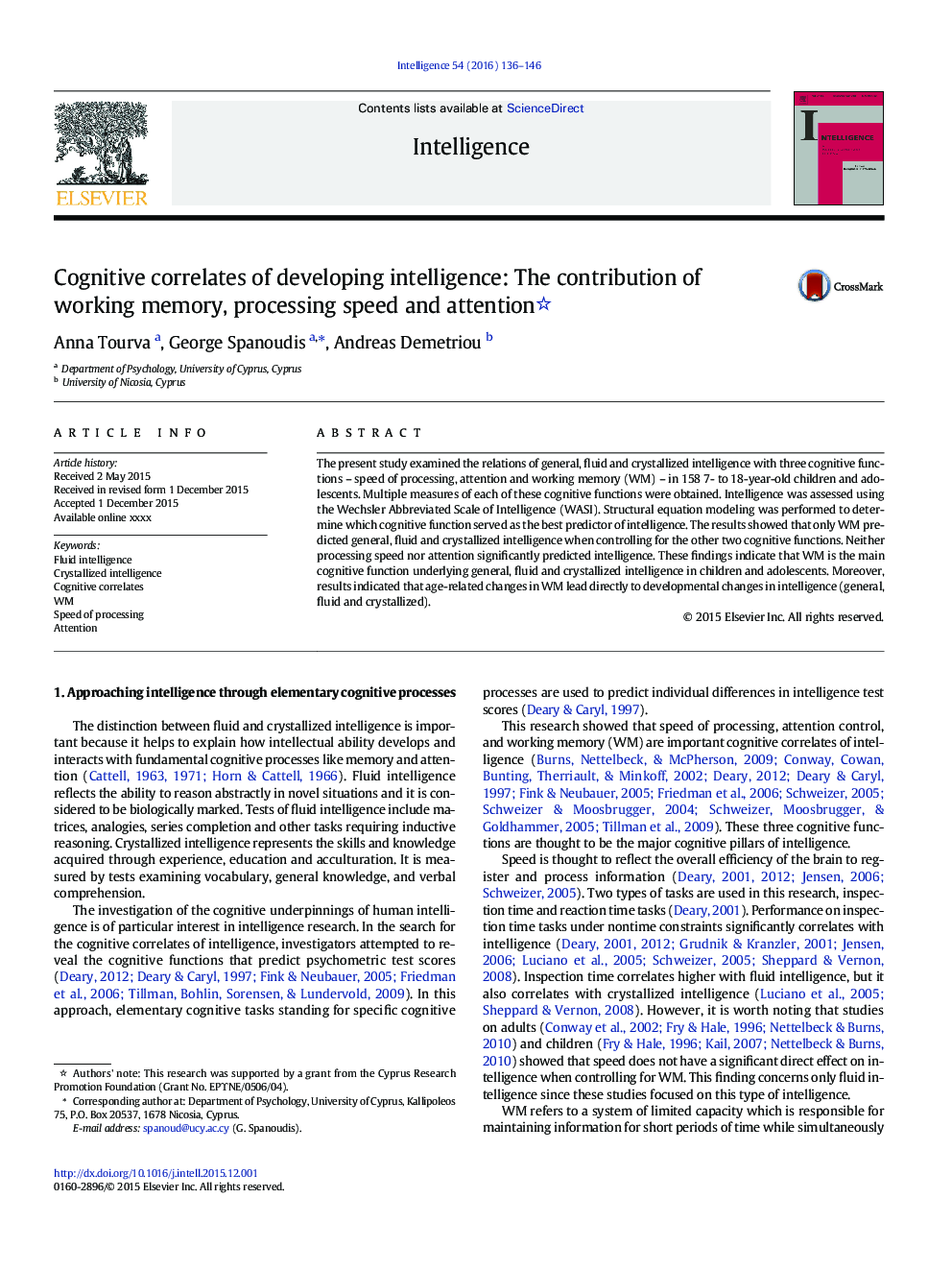| Article ID | Journal | Published Year | Pages | File Type |
|---|---|---|---|---|
| 7293510 | Intelligence | 2016 | 11 Pages |
Abstract
The present study examined the relations of general, fluid and crystallized intelligence with three cognitive functions - speed of processing, attention and working memory (WM) - in 158 7- to 18-year-old children and adolescents. Multiple measures of each of these cognitive functions were obtained. Intelligence was assessed using the Wechsler Abbreviated Scale of Intelligence (WASI). Structural equation modeling was performed to determine which cognitive function served as the best predictor of intelligence. The results showed that only WM predicted general, fluid and crystallized intelligence when controlling for the other two cognitive functions. Neither processing speed nor attention significantly predicted intelligence. These findings indicate that WM is the main cognitive function underlying general, fluid and crystallized intelligence in children and adolescents. Moreover, results indicated that age-related changes in WM lead directly to developmental changes in intelligence (general, fluid and crystallized).
Keywords
Related Topics
Social Sciences and Humanities
Psychology
Experimental and Cognitive Psychology
Authors
Anna Tourva, George Spanoudis, Andreas Demetriou,
